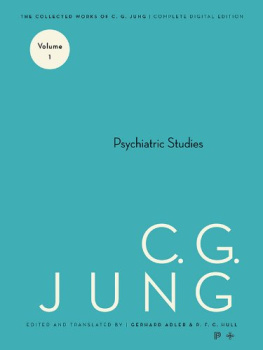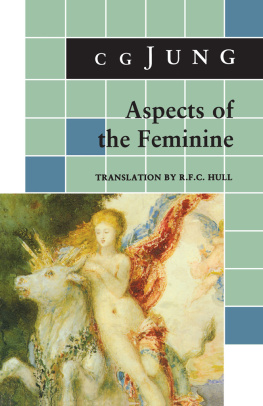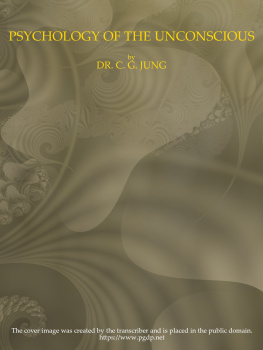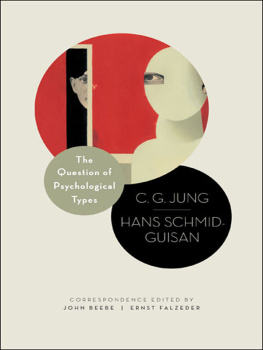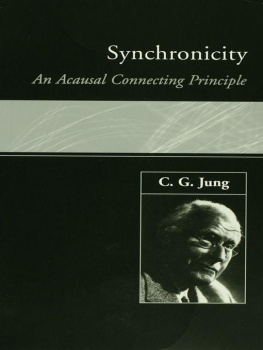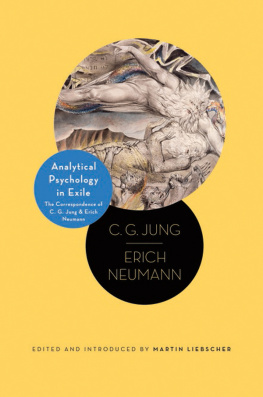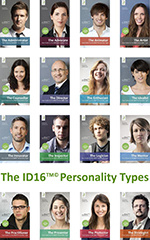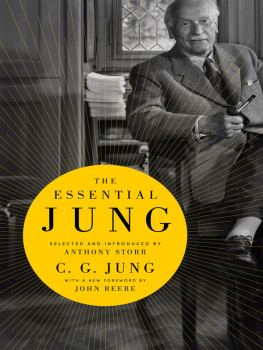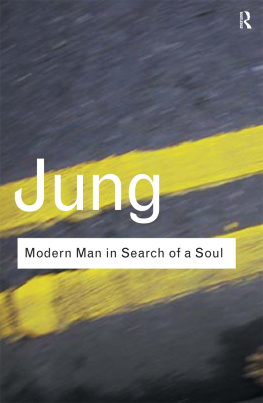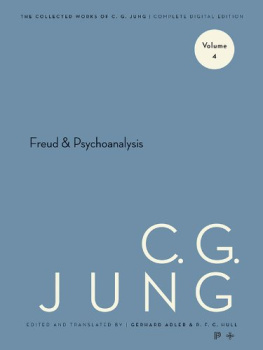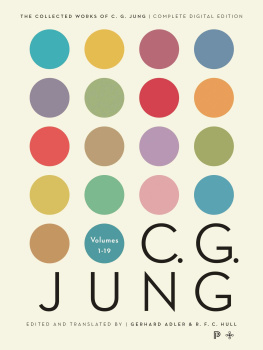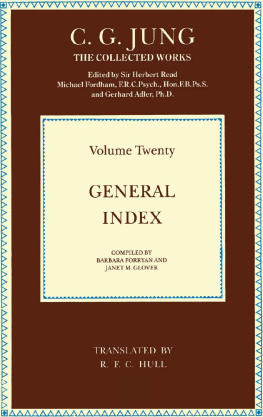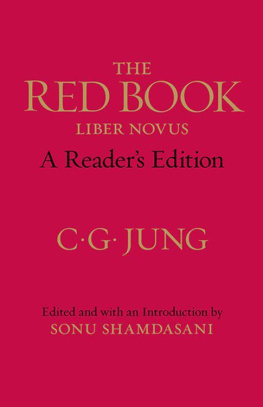C. G. Jung - Development of Personality
Here you can read online C. G. Jung - Development of Personality full text of the book (entire story) in english for free. Download pdf and epub, get meaning, cover and reviews about this ebook. year: 1954, publisher: Princeton University Press, genre: Children. Description of the work, (preface) as well as reviews are available. Best literature library LitArk.com created for fans of good reading and offers a wide selection of genres:
Romance novel
Science fiction
Adventure
Detective
Science
History
Home and family
Prose
Art
Politics
Computer
Non-fiction
Religion
Business
Children
Humor
Choose a favorite category and find really read worthwhile books. Enjoy immersion in the world of imagination, feel the emotions of the characters or learn something new for yourself, make an fascinating discovery.

- Book:Development of Personality
- Author:
- Publisher:Princeton University Press
- Genre:
- Year:1954
- Rating:5 / 5
- Favourites:Add to favourites
- Your mark:
- 100
- 1
- 2
- 3
- 4
- 5
Development of Personality: summary, description and annotation
We offer to read an annotation, description, summary or preface (depends on what the author of the book "Development of Personality" wrote himself). If you haven't found the necessary information about the book — write in the comments, we will try to find it.
Development of Personality — read online for free the complete book (whole text) full work
Below is the text of the book, divided by pages. System saving the place of the last page read, allows you to conveniently read the book "Development of Personality" online for free, without having to search again every time where you left off. Put a bookmark, and you can go to the page where you finished reading at any time.
Font size:
Interval:
Bookmark:
BOLLINGEN SERIES XX

THE COLLECTED WORKS
OF
C. G. JUNG
VOLUME 17
EDITORS
SIR HERBERT READ
MICHAEL FORDHAM, M.D., M.R.C.P.
GERHARD ADLER, PH.D.
WILLIAM MCGUIRE , executive editor
OF
PERSONALITY
C. G. JUNG

TRANSLATED BY R. F. C. HULL
B O L L I N G E N S E R I E S X X


COPYRIGHT 1954 BY BOLLINGEN FOUNDATION INC., NEW YORK, N. Y.
PUBLISHED BY PRINCETON UNIVERSITY PRESS
Second printing, with corrections, 1964
Third printing, with additional corrections, 1970
Fourth printing, 1974
Fifth printing, 1977
First Princeton/Bollingen Paperback printing, 1981
THIS EDITION IS BEING PUBLISHED IN THE UNITED STATES OF AMERICA BY PRINCETON UNIVERSITY PRESS, AND IN ENGLAND BY ROUTLEDGE AND KEGAN PAUL, LTD. IN THE AMERICAN EDITION, ALL THE VOLUMES COMPRISING THE COLLECTED WORKS CONSTITUTE NUMBER XX IN BOLLINGEN SERIES, SPONSORED BY BOLLINGEN FOUNDATION. THE PRESENT VOLUME IS NUMBER 17 OF THE COLLECTED WORKS, AND WAS THE FOURTH TO APPEAR.
LIBRARY OF CONGRESS CATALOG CARD NO. 75-156
ISBN 0-691-09763-1
ISBN 0-691-01838-3 pbk.
MANUFACTURED IN THE U. S. A.
Personality as the expression of the wholeness of man is defined by Jung as an adult ideal whose conscious realization through individuation is the aim of human development in the second half of life. It is to the study of this aim that Jung has devoted his main attention in all his later work. It is manifest that in childhood and adolescence the ego is brought into being and firmly established; no account of individuation, therefore, would be complete without a psychological outline of the early formative period of development.
The present volume is a collection of Professor Jungs papers on child psychology and education, of which the three lectures on Analytical Psychology and Education are the chief item. Jung regards the psychology of parents and educators as of the greatest importance in the maturation and growth to consciousness of the childrenespecially so in the case of those who are unusually gifted. He emphasizes that an unsatisfactory psychological relationship between the parents may be an important cause of psychogenic disorders in childhood. It has been thought relevant to include Jungs paper on Marriage as a Psychological Relationship and, finally, to link up the problems of childhood with those of individuation in the adult by adding the essay which gives the present volume its title.
The essay Child Development and Education is presented here for the first time under this title. It previously appeared as one of the four lectures on Analytical Psychology and Education, published in Contributions to Analytical Psychology; yet it had been delivered on a different occasion from the three others, its subject-matter is different, and it is not included by Jung in Psychologie und Erziehung, which contains the three other lectures. It contains a significant textual change by the author: an important statement in paragraph 106 on the subject of archetypal images in the dreams of children. Editorial reference is given to the privately printed record of Jungs seminars on the subject.
Only the essay The Gifted Child and the introduction to Frances Wickess book Analyse der Kinderseele have not previously been translated into English, apart from the brief alteration mentioned above. But the author has considerably revised the essays on education, so that much new matter is to be found in this volume, which will, it is hoped, help to set forth Jungs position in regard to child psychology.
With the exception of the Introduction to Wickess Analyse der Kinderseele and The Gifted Child, all the papers in the present volume were previously translated by various hands and published in Collected Papers on Analytical Psychology (2nd edition, London, 1917, and New York, 1920), Contributions to Analytical Psychology (London and New York, 1928), and The Integration of the Personality (New York, 1939; London, 1940). Several of them, as indicated in the footnotes at the beginning of each paper, have since been revised and expanded by the author. I would like to express my thanks to the late Dr. A. A. Brill, Mr. Stanley Dell, and in particular to Mrs. Cary F. Baynes, for permission to make full use of the earlier texts in preparing the present revised versions.
Translated from ber Konflikte der kindlichen Seele, Psychologie und Erziehung (Zurich: Rascher, 1946).
Translated from the German edition (Stuttgart: Hoffman, 1931).
Translated from the unpublished German original.
Translated from Analytische Psychologie und Erziehung, Psychologie und Erziehung (Zurich: Rascher, 1946).
Lecture One, Lecture Two, Lecture Three
Translated from Der Begabte, Psychologie und Erziehung (Zurich: Rascher, 1946).
Translated from the unpublished German original.
Translated from Vom Werden der Persnlichkeit, Wirklichkeit der Seele (Zurich: Rascher, 1934).
Translated from Die Ehe als psychologische Beziehung, Seelenprobleme der Gegenwart (Zurich: Rascher, 1931).
BIBLIOGRAPHICAL NOTE
PSYCHIC CONFLICTS IN A CHILD
[The third of a series of lectures on The Association Method, delivered on the 20th anniversary of the opening of Clark University, Worcester, Massachusetts, September, 1909. The original version was published under the title ber Konflikte der kindlichen Seele, Jahrbuch fr psychoanalytische und psychoputhologische Forschungen, II (1910), 33ff. It was translated by A. A. Brill and published in the American Journal of Psychology, XXI (1910), in a Clark University anniversary volume (1910), and in Collected Papers on Analytical Psychology (1st edn., London, 1916; 2nd edn., London, 1917, and New York, 1920). The revised version, of which this present essay is a translation, appeared in Psychologie und Erziehung (Zurich, 1946). The first two lectures comprising The Association Method were never published in German but were included in the aforementioned 1910 and 1916 publications. See Vol. 2 of the Coll. Works. EDITORS .]
I am publishing this little study just as it is, without making any alterations for the second edition. Although in point of fact our conceptions have been considerably modified and extended since these observations first appeared in 1910, I do not feel that the subsequent modifications would justify me in describing the views put forward in the first edition as basically false, an imputation that has been laid against me in certain quarters. On the contrary, just as the observations here recorded have retained their value as facts, so also have the conceptions themselves. But no conception is ever all-embracing, for it is always dominated by a point of view. The point of view adopted in this work is psycho-biological. It is naturally not the only one possible, indeed there are several others. Thus, more in accord with the spirit of Freudian psychology, this little piece of child psychology could be regarded from the purely hedonistic standpoint, the psychological process being conceived as a movement dominated by the pleasure principle. The main motives would then be the desire for and the striving towards the most pleasurable, and hence the most satisfying, realization of fantasy. Or, following Adlers suggestion, one could regard the same material from the standpoint of the power principle, an approach which is psychologically just as legitimate as that of the hedonistic principle. Or one could employ a purely logical approach, with the intention of demonstrating the development of logical processes in the child. One could even approach the matter from the standpoint of the psychology of religion and give prominence to the earliest beginnings of the God-concept. I have been content to steer a middle course that keeps to the psycho-biological method of observation, without attempting to subordinate the material to this or that hypothetical key principle. In so doing I am not, of course, contesting the legitimacy of such principles, for they are all included in our human nature; but only a very one-sided specialist would think of declaring as universally valid the heuristic principle that had proved its particular value for his discipline or for his individual method of observation. The essence of human psychology, precisely because so many different possible principles exist, can never be fully comprehended under any one of them, but only under the totality of individual aspects.
Next pageFont size:
Interval:
Bookmark:
Similar books «Development of Personality»
Look at similar books to Development of Personality. We have selected literature similar in name and meaning in the hope of providing readers with more options to find new, interesting, not yet read works.
Discussion, reviews of the book Development of Personality and just readers' own opinions. Leave your comments, write what you think about the work, its meaning or the main characters. Specify what exactly you liked and what you didn't like, and why you think so.

